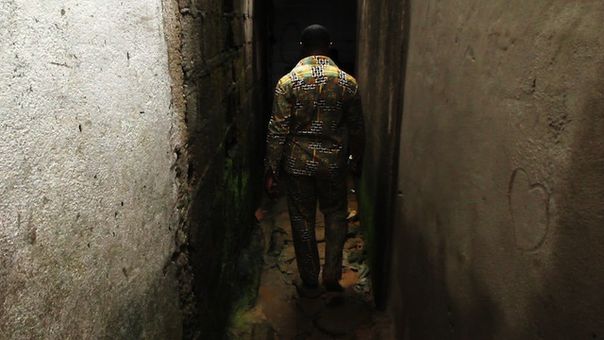THE PUBLIC RESTRICTIONS ON PRIVATE LIFE
Sexual minorities in Cameroon pour their hearts out to open-minded foreign audiences.

BORN THIS WAY
Shaun Kadlec and Deb Tullmann’s documentary BORN THIS WAY (Berlinale Panorama), borrowing its title from an album of eccentric pop singer Lady Gaga, reports on the prejudice against gays and lesbians living in the very conservative Republic of Cameroon. While the people interviewed in BORN THIS WAY may believe they’re entitled to a greater degree of tolerance, and know that sexual minorities in Western societies have already obtained it, the current legislation in Cameroon allows for the imprisonment of homosexuals, proven or suspected.
The Los Angeles-based filmmakers admit that working on the documentary was less risky for them than for the subjects, whose sexual preferences are still partly secret in their social circle (for personal safety reasons, the documentary will never be shown publicly in Cameroon). With the exception of one sequence, filmed illegally in a courtroom while a trial for "lesbianism and witchcraft" is taking place, the camera is never in the middle of the action. The story builds as the subjects spontaneously recount their experiences or show evidence of harrassment. Since the downside of a progressive documentary is that it practically demands that the oppressed make a spectacle of the injustice they’ve suffered, the filmmakers have taken the delicate approach of allowing the interviewees the freedom to run the show. On the other hand, their non-interference might have gone too far: on first glance, the best bits in the documentary appear to be the product of chance.
The highlights of this film are simple yet gripping. Recurring characters Cedric and Gertrud make emotionally demanding confessions: he tells the camera that he is "not himself with women"; she decides to come out in front of a nun who took care of her and is met with reassuring acceptance. In another scene, a man driving a woman in his car casually engages her in conversation; he learns she’s bisexual and becomes increasingly stimulated by her frankness.
Unfortunately, the filmmakers’ techniques don’t always rise to the occasion. Kadlec and Tullmann cut within a sequence or between sequences to spare the audience the effort of following the speakers’ digressions, but they end up being too intrusive. The idea implicit in BORN THIS WAY – that gay rights are human rights – isn’t new, but the faces in the documentary are. By interrupting their speech or juxtaposing different fragments of their discourse, the filmmakers inadvertently censor the characters and replace the characters’ thought associations with their own. In one scene, after Cedric visits the grave of his father and wistfully reminisces that he was a serene man, Kadlec and Tullmann cut to his explanation of why he wouldn’t open up to his father and how pressing it was to keep the secret. But did he say that immediately, as if he were burning to articulate the thought? Or have the filmmakers just taken out the boring bit?

